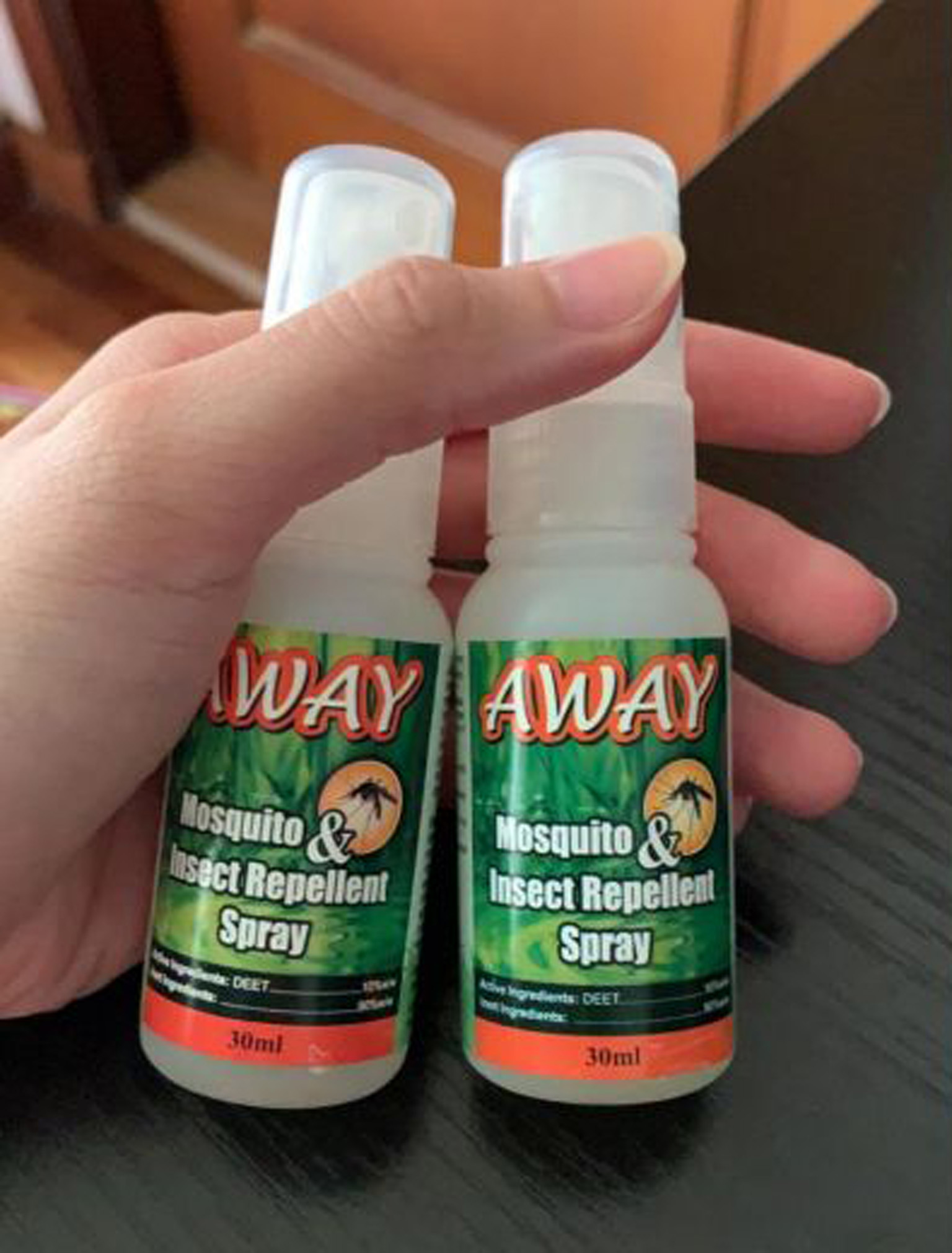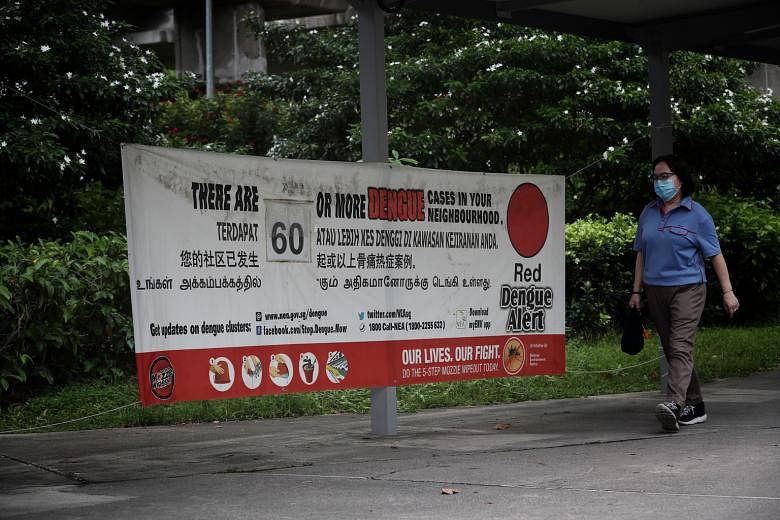More than 300,000 bottles of mosquito repellent are being given out free to suspected dengue patients by polyclinics and general practitioner clinics as the country prepares to enter the traditional dengue peak period.
Those who are suspected of having the disease are recommended to apply mosquito repellent regularly because this can protect others around them from getting infected and help break the transmission chain, said the National Environment Agency (NEA) yesterday.
The 30ml bottles have been distributed to the clinics since early this month, ahead of the traditional peak dengue season between next month and October. NEA worked with the Ministry of Health and the clinics on this.
The agency said that 529 dengue cases were reported in the week ending last Saturday, higher than the 300 to 400 weekly cases that Singapore had in the first four months of this year.
Over the same period, NEA conducted about 310,000 inspections islandwide for mosquito breeding and found more than 6,400 mosquito breeding habitats.
In the light of this, the agency urged collective community action, and encouraged residents who are staying home over the circuit breaker period to be proactive in spraying mosquito repellent and getting rid of potential breeding sites on their premises by spraying insecticide in dark corners of their homes.
"With more people staying home, there is a higher risk of disease transmission within housing estates, especially in areas where the population of the Aedes mosquito - a day biter (which spreads the dengue virus) - is high," the agency said.
Outside of homes, since the start of the circuit breaker period, NEA has increased audits at construction sites to ensure that control measures are in place.
Of the 1,514 construction sites as well as additional and alteration work sites, NEA said it is prioritising audits at sites within dengue clusters and within residential areas. Half of these have been inspected as of yesterday.
From January to last month, 31 summonses and two stop work orders were issued to construction sites, and two contractors are expected to be charged in court over repeat offences.

More information about areas with higher Aedes mosquito populations and dengue clusters can be found on the NEA website and myENV mobile app.
NEA has also started using SMS blasts since last month to reach and alert residents in targeted dengue cluster areas.
The agency said: "As we enter the warmer months ahead, the increased risk of higher transmission of dengue is a concern, due to the accelerated breeding cycle and maturation of the Aedes mosquito vectors, as well as the shorter incubation period of the dengue virus."
This is not the first time the authorities have given out mosquito repellent.
In 2013, NEA said that 1.2 million units of repellent would be distributed to home owners, beginning with those who lived in cluster areas. NEA also worked with the Education Ministry to distribute mosquito repellent to children in schools located in dengue clusters.
Tips to prevent spread of dengue
1. Apply mosquito repellent to avoid being bitten.
2. Spray insecticide in the toilet and dark corners of your home.
3. Flip over flower pot plates and loosen hardened soil to prevent stagnant water from collecting.
4. Treat potential breeding sites such as drain gutters with insecticide.
5. Cap bamboo pole holders to prevent water from collecting in them.
6. Turn over pails and tip drying racks and toothbrush holders daily.
7. Change water in flower vases on alternate days.
8. Cover rarely used gully traps and install anti-mosquito valves.
9. Remove unwanted receptacles in HDB corridors so they will not collect rainwater.
10. Keep scupper drains free from obstructions.
11. Clear fallen leaves and tree branches from drains, and seal up tree holes in gardens to prevent collection of stagnant water.
12. Subscribe to dengue and Aedes mosquito alerts on the myENV mobile app for the latest updates.


